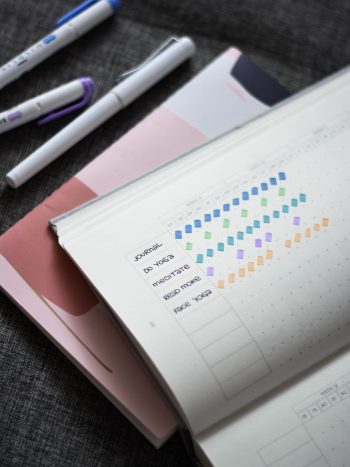Home / Health & Wellness Articles / Mental Health /
Healthy Vs. Unhealthy Coping Mechanisms

Stressful situations happen to us all. Whether you are anxious about a new project at work, or are anticipating a big life event, there are various ways to deal with these emotions. In fact, there are both healthy and unhealthy ways to cope and manage your stress. Listed below are common ways we tend to think we are helping ourselves and other solutions that might prove more beneficial.
Five of the most common unhealthy coping mechanisms are:
-
Avoiding issues.
Though this might feel like an easier way to deal with your concerns, pushing them away will ultimately cause them to resurface again, possibly stronger.
-
Sleeping too much.
Very similar to avoiding concerns, this is another distraction that might feel better in the moment but may lead to more problems down the line. Oversleeping has been linked to impaired functioning and isolating, which have been linked to feelings of depression.
-
Excessive drug or alcohol use.
Drug and alcohol use can be a slippery slope. Stimulants and depressants may help to numb feelings and subside those negative thoughts that are actively being avoided, but excessive use can lead to severe health complications such as addiction, overdose, and even death.
-
Impulsive spending.
Retail therapy can start off as simple as purchasing small trinkets or gadgets but can often lead to greater spending that can cause serious financial problems.
-
Over or under eating.
Your body needs nutrition and fuel to function throughout the day. Anything over or under the recommended amount of nutrition can cause severe health issues.
“It is easier to revert back to the unhealthy coping mechanisms—we do it automatically. We are all predisposed to relying on negative coping skills. It’s important to check in with yourself routinely to determine if you are employing healthy coping skills,” says Nikki Dugger, Integrated Care Manager at Centerstone.
If you notice yourself feeling anxious, depressed, or just having a difficult time, try using the following methods.
Utilize these 5 methods to help you address your mental health challenges in a more positive and long-lasting way:
-
Facing the problem.
Focus on what is causing your stress or anxiety, and face it head-on.
-
Talking to a trusted friend or family member.
Talking to a loved one can provide you with emotional support and validation that can be beneficial for healthy coping.
-
Participating in a hobby or sport.
Creative or athletic outlets can be both stimulating and therapeutic. Making sure you are setting aside time to utilize these practices will allow a routine to form.
-
Learning what your triggers are.
With substance use or other mental illnesses, it is useful to know what triggers your negative responses. Keeping track of how you feel in different situations and being aware of how you react will can set you up for success in knowing how to cope with them.
-
Seeking professional treatment.
Navigating emotions, triggers, and addictions can be challenging without professional help. Therapy can be beneficial to learning how to cope and process different emotions and behaviors through a different lens.
Coping with stressful situations can take a toll on our physical and mental health. If you need extra support in practicing healthy behaviors, Centerstone can help. Give us a call at 877-HOPE123 (1-877-467-3123) or visit our counseling services page to learn more.


